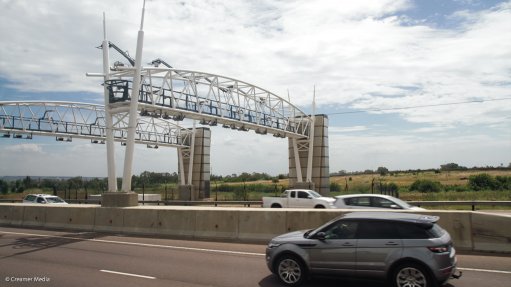
Photo by: Duane Daws
Yet another transport economist has come out in defence of the contested e-toll system, arguing that 94% of overall toll fees were paid by those within the highest-earning quintile and that the South African National Roads Agency Limited (Sanral) should “get a medal” for the Gauteng Freeway Improvement Project (GFIP).
An animated Dr Roelof Botha told the Advisory Panel on the Socioeconomic Impact of E-tolls on Wednesday that, for every R1 spent by commuters on e-tolls, they achieved a R13.70 benefit, based on time saved.
“This is quantifiable, this is not pie in the sky stuff. I am 100% in favour of GFIP and the user-pays system and I hope it will be extended to other cities. We need urgently to upgrade our roads and government simply doesn’t have the money,” he asserted, amid a heated exchange with panel member and attorney John Ngcebetsha over Botha’s alleged “argumentative approach”.
The panel had been tasked by Gauteng Premier David Makhura to investigate the socioeconomic impact of the tolling system on the province and was expected to deliver a final report and list of recommendations to the Gauteng provincial government by November 30.
Botha’s assertions followed earlier submissions to the panel by transport economist Barry Standish, who maintained that the long-term savings as a result of the e-tolls and the GFIP outweighed the associated costs and toll tariffs, and that commuters paid “only” 25c in toll tariffs for every R100 earned.
Botha added that the primary benefit of funding the GFIP through the user-pays mechanisms was that it allowed Sanral to secure an international credit rating, raise funds through public–private partnerships and ensure the timely completion of mega-infrastructure projects.
This was a particularly critical function, as South Africa had a limited tax base from which the roads organisation could draw funding, he said.
Botha asserted that the user-pays system was based on a sound fiscal principle of user charges and enabled the broadening of the tax base, relieving pressure on the fiscus and preventing undue upward pressure on the long-term bond yield, while avoiding cross-subsidisation by other provinces.
“This further protects the South African government’s global credit rating and allows for fiscal leeway to fund future road upgrade projects,” he noted.
Botha argued further that e-tolls had a progressive revenue impact, as the bulk of the tolls would be paid by the country’s highest earners.
Moreover, commuters experienced cost-savings as a result of the GFIP, and enjoyed improved fuel efficiency, lower fuel maintenance costs, lower levels of congestion and time savings.
“There is no [sound] theoretical or principled argument against e-tolls, [the system] is principally and theoretically sound.
“This is an engineering masterpiece unparalleled on the continent for which [Sanral] has received very little acclaim,” he remarked.
Sanral was expected to make further submissions in defence of e-tolling in the province later on Wednesday.